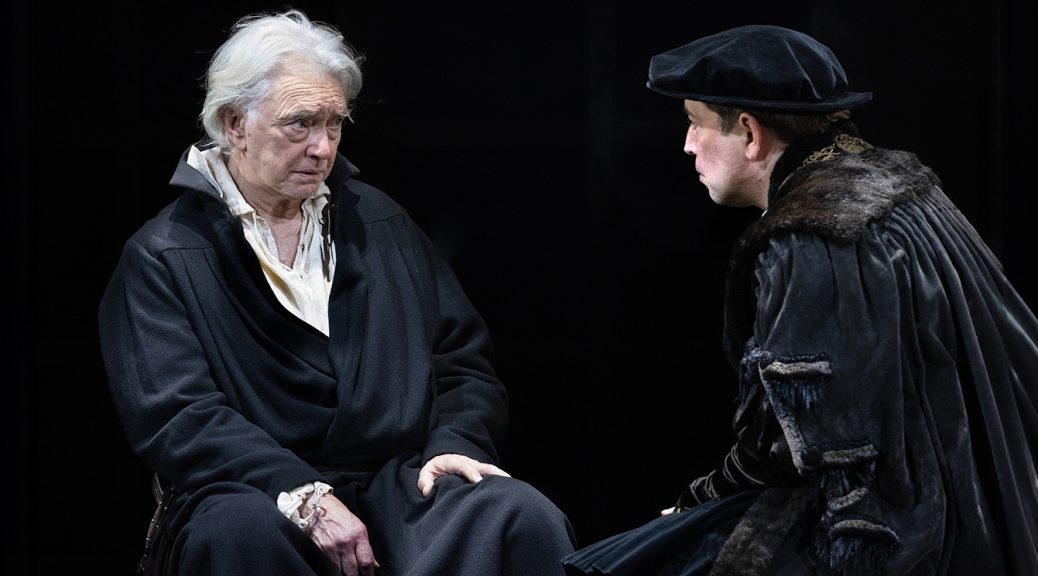Casting Martin Shaw as Thomas More for this revival of Robert Bolt’s play is a sound move. As the lawyer-turned-politician, struggling against Henry VIII’s Reformation, the character possesses personal conviction and precise argument. Shaw can deliver both integrity and clarity very well, aided by great stage presence. And he brings a sense of the outsider, with a wry eye and cool common sense, that is perfect for the role.
Famous faces from the Tudor court are present, with a large, competent, supporting cast. I liked Orlando James’ brief appearance as Henry VIII; a figure to fear making fun of. And Edward Bennett’s Thomas Cromwell has a mix of cynical humour and, again, fear, that adds to the role.
With Jonathan Church’s smooth direction, and a stylish set from Simon Higlett, the production is a quality affair. But Bolt’s 1960 script hasn’t aged well, and cracks show.
Most of More’s family fail to rise above being foils for the great man. It’s understandable, as there’s a lot of exposition and explanation to get through. More’s recalcitrance is a puzzle for most of us; what does he achieve from his silence? Wife, daughter and son-in-law are only there to put forward different arguments. At least they convince with regards to the affection among the family.
The role of the ‘Common Man’, arguably innovative in Bolt’s time, proves a further problem. While Gary Wilmot has a good go at the role, injecting plenty of energy, the jokes are poor and the insights weak. And is the play’s baddie, the dastardly Richard Rich, who Calum Finlay does well with, too bland?
Rewriting history isn’t new. More participated himself, with regards to Richard III, as Josephine Tey’s detective in The Daughter of Time points out. It’s often fun and right now its trendy. But this effort to look at the past feels old-fashioned itself. Bolt’s efforts are sensible and considered but also dry. And he comes too close to canonising More a second time. We may admire the saintly sangfroid, but it doesn’t add tension. The history lacks bite – it’s too calm. Which you might respect but ends up surprisingly lacking in drama.
Until 6 September 2025
https://www.haroldpintertheatre.co.uk
Photo by Simon Annand


